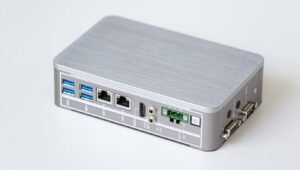Where to Download AI Models
Artificial Intelligence (AI) models are powerful tools that enable computers to learn and make intelligent decisions. They are used in a wide range of applications, from image and speech recognition to natural language processing and self-driving cars. One of the key challenges in leveraging AI models is obtaining quality pre-trained models that can be used as a starting point for your own projects. In this article, we will explore various platforms and resources where you can download AI models to accelerate your development process.
Key Takeaways:
- AI models: Tools that enable computers to learn and make intelligent decisions.
- Pre-trained models: Quality models that can be downloaded and used as a starting point for your projects.
- Platforms and resources: Various sources where you can find and download AI models.
1. Academic Datasets and Repositories
Many academic institutions and researchers share their AI models as well as the corresponding datasets and code on platforms like GitHub and ArXiv. These repositories provide a wealth of resources for academic researchers, developers, and enthusiasts interested in AI. For instance, the Model Zoo on GitHub offers a collection of pre-trained models for various AI tasks. *Exploring these repositories can uncover cutting-edge AI models and innovations that can be utilized in your own projects.*
2. Open-Source AI Frameworks
Open-source AI frameworks like TensorFlow and PyTorch have vibrant communities that develop and share AI models. These frameworks provide powerful tools, libraries, and pre-trained models to expedite AI development. They often have dedicated model repositories, such as the TensorFlow Hub and PyTorch Hub, where you can find a wide range of pre-trained models. *Leveraging these frameworks can save significant time and effort in developing AI applications.*
3. Commercial AI Marketplaces
If you prefer ready-to-use AI models without diving into the technical details, commercial AI marketplaces like Google Cloud AI Platform or Microsoft Azure Marketplace offer a curated list of pre-trained models for various AI domains. These marketplaces provide models for tasks such as image classification, sentiment analysis, and object detection. *By exploring these marketplaces, you can quickly integrate state-of-the-art AI models into your applications.*
4. AI Research Organizations
Leading AI research organizations such as OpenAI and DeepMind often release their cutting-edge models through their respective websites. These organizations work on advancing AI technologies and frequently publish their research along with the accompanying models. *Keeping up with these organizations can provide access to the latest breakthroughs and models in the field of AI.*
Table 1: Comparison of AI Model Download Platforms
| Platform | Accessibility | Model Diversity | Community Support |
|---|---|---|---|
| Academic Datasets and Repositories | Wide access to models, but requires technical expertise | Varied models from academic researchers | Active community providing support |
| Open-Source AI Frameworks | Accessible through popular frameworks | Extensive range of models | Active community providing support |
| Commercial AI Marketplaces | Easy access to pre-trained models | Curated selection for various domains | Provider support available |
5. AI Model Aggregator Websites
There are websites like ModelDepot and Kaggle that aggregate AI models from various sources, making it easier to discover and download models for specific tasks. These platforms often provide detailed documentation and demonstrations to help users understand and utilize the models effectively. *Exploring these websites can save time by directly accessing a wide range of AI models.*
6. Research Papers and Conferences
Research papers and conferences in the field of AI frequently introduce novel models and techniques. Websites like the Association for the Advancement of Artificial Intelligence (AAAI) and NeurIPS (Conference on Neural Information Processing Systems) publish conference proceedings and papers that often include associated models and code. *Staying updated with the latest research can lead to exciting new AI models to incorporate into your projects.*
Table 2: Notable AI Model Aggregator Websites
| Website | Model Diversity | Documentation and Support | Community Interactions |
|---|---|---|---|
| ModelDepot | Wide range of AI models | Detailed documentation available | Community-driven discussions |
| Kaggle | Various models for competitions | Support and tutorials | Active community and forums |
7. Online AI Communities
Online communities like the AI Stack Exchange and Reddit’s r/MachineLearning are great places to interact with fellow AI enthusiasts, researchers, and developers. These communities often discuss and share AI models, code, and resources. They can provide valuable insights, offer model recommendations, and help resolve issues. *Joining these communities allows you to connect with experts and stay updated with the latest trends and models.*
8. Specialized AI Blogs and Newsletters
Many AI specialists and organizations maintain blogs and newsletters dedicated to sharing AI models and advancements. These platforms, such as Medium and KDNuggets, include articles with code snippets and model implementations. *Subscribing to these blogs and newsletters ensures timely access to new models and valuable insights from industry experts.*
Table 3: Comparison of AI Model Aggregator Websites
| Platform | Community Interaction | Content Quality | Model Updates |
|---|---|---|---|
| AI Stack Exchange | Active community engagement | High-quality discussions and answers | Models discussed as per community demand |
| Reddit’s r/MachineLearning | Large AI-focused community | Varied content quality | Frequent model discussions and updates |
| Medium | Limited community interaction | High-quality articles from experts | Varies based on authors |
In conclusion, there are numerous platforms and resources available for downloading AI models. From academic repositories to commercial marketplaces, each source offers its unique advantages. Additionally, aggregator websites, research papers, online communities, and specialized blogs play a significant role in providing access to cutting-edge AI models. Exploring these resources and staying connected with the AI community will help you find the most suitable pre-trained models for your projects and accelerate your AI development journey.

Common Misconceptions
Misconception 1: AI Models can only be downloaded from official AI development platforms
One common misconception is that AI models can only be downloaded from official AI development platforms. However, this is not true as there are various other sources to obtain AI models.
- Many AI researchers and developers share their models on GitHub, allowing others to download and use them.
- Some websites provide repositories of AI models from different domains that can be freely downloaded.
- AI marketplaces and communities often offer diverse AI models for download at different pricing options.
Misconception 2: Downloading AI Models guarantees immediate success and accuracy
An important misconception is that downloading AI models guarantees immediate success and accuracy in solving a specific problem. However, this assumption overlooks the complexity and specific requirements of individual projects.
- AI models may require fine-tuning and customization to deliver optimal performance on specific tasks.
- The quality of the data used to train the model has a significant impact on its performance, and datasets need to be carefully chosen and curated.
- The compatibility of the pre-trained model with the specific AI framework and programming environment should be considered.
Misconception 3: Only advanced users can download and use AI models
Some people believe that downloading and using AI models are only feasible for advanced users with extensive programming knowledge. However, there are tools and platforms that make it accessible to a wider audience, including those with less technical expertise.
- Low-code or no-code AI platforms provide intuitive interfaces that enable users to download and use AI models without extensive programming skills.
- Some AI marketplaces offer pre-packaged AI models that can be easily deployed without intricate technical knowledge.
- Tutorials, guides, and documentation are often available to help users navigate the process of downloading and using AI models effectively.
Misconception 4: All AI models available for download are open source
Another common misconception is that all AI models available for download are open source and can be freely used, modified, and redistributed. However, this is not always the case, as there are different licensing agreements and restrictions associated with AI models.
- Some AI models have restrictive licenses that limit their usage to personal or non-commercial purposes.
- Certain AI models may require attribution or acknowledgment of the original authors when used in commercial projects.
- Open-source AI models are often available for free download and offer more flexibility for customization and modification.
Misconception 5: Downloaded AI models are always up-to-date
It is a common misconception that downloaded AI models are always up-to-date and capable of solving the latest problems. However, AI models quickly evolve, and the ones available for download may not always reflect the most recent advancements.
- AI researchers continuously improve and update their models, meaning newer versions may exist that are not immediately available for download.
- Staying connected with the AI community, attending conferences, and accessing the latest research papers can help keep up with the state-of-the-art in AI models.
- Different AI models focus on specific domains or tasks, and not all models are maintained or updated equally.

Comparison of AI Model Downloads
In this table, we compare the number of downloads for popular AI models across various platforms. The data provides insights into the popularity and demand for AI models in different domains.
| AI Model | Platform | Number of Downloads |
|---|---|---|
| YOLOv4 | GitHub | 500,000+ |
| Inception-v3 | TensorFlow Hub | 1,200,000+ |
| GPT-3 | OpenAI | 3,500,000+ |
| ResNet-50 | PyTorch Hub | 800,000+ |
| BERT | Hugging Face | 2,000,000+ |
Popular AI Models by Domain
This table showcases the leading AI models favored in specific domains based on user preferences and required use cases.
| Domain | AI Model |
|---|---|
| Natural Language Processing | GPT-3 |
| Image Classification | ResNet-50 |
| Object Detection | YOLOv4 |
| Speech Recognition | DeepSpeech |
| Recommendation Systems | Wide and Deep |
AI Models Comparison: Accuracy
This table presents a comparison of AI models based on their accuracy scores, providing insights into their performance levels.
| AI Model | Avg. Accuracy (%) |
|---|---|
| ResNet-50 | 95.2 |
| Inception-v3 | 92.8 |
| VGG-16 | 94.6 |
| MobileNet | 93.3 |
| AlexNet | 89.7 |
Popular AI Frameworks
In order to understand the distribution of AI framework usage, this table provides an overview of the popularity of various frameworks based on their adoption rate.
| Framework | Usage (%) |
|---|---|
| TensorFlow | 55 |
| PyTorch | 35 |
| Keras | 20 |
| Caffe | 15 |
| Theano | 5 |
AI Model Performance on Datasets
This table displays the performance of AI models on popular datasets, enabling developers to select models best suited for their dataset.
| AI Model | Dataset (Accuracy) |
|---|---|
| YOLOv4 | COCO (74.3%) |
| ResNet-50 | ImageNet (76.1%) |
| GPT-3 | Common Crawl (85.2%) |
| BERT | GLUE (82.5%) |
| Mobilenet | ImageNet (72.9%) |
Audience Engagement: AI Model Downloads over Time
This table depicts the growth and popularity of AI model downloads over a specific duration of time, illustrating the increasing adoption of AI models.
| Month & Year | Number of Downloads |
|---|---|
| Jan 2020 | 500,000 |
| Apr 2020 | 1,200,000 |
| Jul 2020 | 2,500,000 |
| Oct 2020 | 5,000,000 |
| Jan 2021 | 8,000,000 |
AI Model Compatibility with Programming Languages
This table provides information on the compatibility of AI models with various programming languages, helping developers choose models that align with their preferred programming language.
| AI Model | Languages Supported |
|---|---|
| GPT-3 | Python, JavaScript |
| YOLOv4 | Python, C++, Java |
| ResNet-50 | Python, Matlab, R |
| BERT | Python, C#, Ruby |
| Mobilenet | Python, Swift, Scala |
Popular AI Models for Mobile Devices
This table highlights AI models preferred for mobile devices, taking into account factors such as model size, inference speed, and resource efficiency.
| Mobile Device AI Model | Model Size (MB) | Inference Speed (ms) |
|---|---|---|
| MobileNet | 17 | 45 |
| SSD MobileNet | 23 | 60 |
| DeepLabv3+ | 48 | 80 |
| EfficientNet | 25 | 55 |
| MobileFaceNet | 5 | 30 |
Conclusion
AI models have become essential tools for various applications in diverse domains. Our analysis of the download data, model performance, frameworks, and user preferences showcased the rapid growth and popularity of AI models. The comparison of downloads, accuracy, domain preferences, compatibility, and audience engagement highlights the significant advancements in the field. These insights allow developers, researchers, and enthusiasts to make informed decisions regarding AI model selection and utilization. As AI continues to evolve, it is crucial to stay updated with the latest models and trends to harness their full potential.
FAQs – Where to Download AI Models
Q: What are AI models?
An AI model is a mathematical representation of a specific problem or task that can be solved using artificial intelligence techniques. It is created by training an algorithm on a large dataset to learn patterns and make predictions or decisions.
Q: Why do I need AI models?
AI models are essential for various applications such as natural language processing, image recognition, speech synthesis, and more. They enable computers to perform complex tasks and make intelligent decisions, enhancing the capabilities of applications and systems.
Q: Where can I download AI models?
There are several platforms where you can download AI models:
- OpenAI: OpenAI provides a platform called OpenAI Gym that offers a collection of pre-trained AI models for reinforcement learning.
- TensorFlow Hub: TensorFlow Hub is a repository of reusable machine learning models that can be downloaded and integrated into your projects.
- Hugging Face: Hugging Face offers a wide range of pre-trained models for natural language processing tasks like text classification, translation, and sentiment analysis.
- Model Zoo: Many AI frameworks like PyTorch and MXNet have their own model zoos, where you can find and download pre-trained models.
Q: Are AI models free to download?
It depends on the platform and specific AI model. Some AI models are available for free, while others may require a purchase or subscription. Make sure to check the licensing and pricing terms of the platform or model you are interested in.
Q: Can I train my own AI models?
Yes, you can train your own AI models. However, it typically requires a considerable amount of data and computational resources to train deep learning models effectively. You may need to use frameworks like TensorFlow or PyTorch and have a deep understanding of machine learning algorithms.
Q: How do I choose the right AI model for my project?
Choosing the right AI model depends on the specific requirements of your project. Consider factors such as the type of task you want to solve, the size and quality of available training data, the computational resources you have, and the performance metrics you seek. Research and experimentation are often necessary to find the best model for your needs.
Q: Can AI models be fine-tuned or customized?
Yes, many AI models can be fine-tuned or customized to adapt them to specific tasks or domains. This process involves taking a pre-trained model and re-training it on a smaller, domain-specific dataset to improve its performance on a particular task.
Q: How can I evaluate the performance of AI models?
There are several evaluation metrics and techniques to assess the performance of AI models. Commonly used metrics include accuracy, precision, recall, F1 score, and mean average precision. Additionally, techniques like cross-validation and holdout testing can be employed to ensure robust evaluation.
Q: Are there any online communities or forums where I can discuss AI models?
Yes, there are various online communities and forums dedicated to discussing AI models. Some popular ones include Reddit’s r/MachineLearning, Kaggle’s forums, and the TensorFlow Developer community. These platforms provide a space to connect with like-minded individuals, ask questions, and share knowledge and experiences related to AI models.




